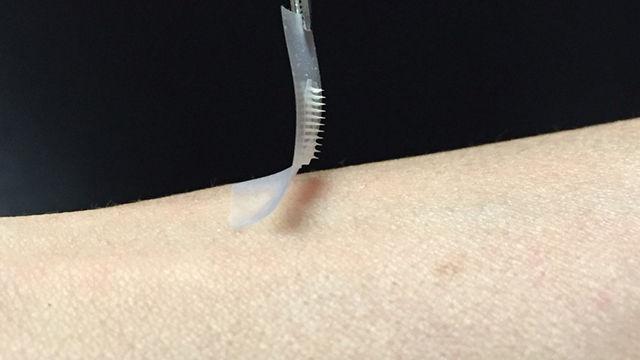For most Americans living with diabetes, insulin injections have become a normal part of everyday life. Thanks to researchers at NC State and UNC-Chapel Hill, these days may soon come to an end due to the innovation with the “smart insulin patch.”
For those suffering from diabetes, managing blood sugar levels, pricking fingers, insulin shots and monitoring their diet is the norm. The “smart insulin patch” will lessen these systematic processes and let diabetics live easier lives.
The patch, no bigger than the size of a penny, is composed of more than a hundred “microneedles,” each about the size of a hair follicle. Each “microneedle” is filled with insulin and glucose-sensing enzymes that rapidly release medicine when blood sugar levels are too high.
As part of a joint project at UNC-CH and NC State, the researchers have tested the smart insulin patch on mice and have seen positive results. It lowered blood glucose levels in mice with Type 1 diabetes for up to nine hours, according to a study published in the Proceedings of the National Academy of Sciences.
In early testing, researchers discovered that when they used traditional insulin injections on diabetic mice, they saw their blood sugars stabilize then climb back into having extreme glucose in their blood. However, mice that received the insulin patch had glucose levels normalize within 30 minutes and maintained normality for several hours.
Because mice are less sensitive to insulin than humans, the researchers think that the blood sugar-stabilizing effects of the patch could last even longer when given to actual patients.
Testing has now moved onto larger animals, like pigs. If the smart insulin patch is successful with the pigs, the clinical trials will move onto humans, though it may take several years, according to Jicheng Yu, a graduate student studying in the joint department of biomedical engineering at UNC-CH and NC State.
The faster response of this approach holds promise in avoiding hyperglycemia in the blood system. The patch has a more precise injection of measuring the quantity of insulin and will prevent diabetics from receiving too much or too little insulin.
Zhen Gu, assistant professor in the biomedical engineering department at NC State, has been working on this project for two years and was inspired to do this research because of how many people are affected from diabetes.
“As a biomedical engineer, we really want to help people with diabetes to improve their health and quality of life,” Gu said.
Eventually the researchers would like to develop a patch that would last several days without replacement, according to Gu.
Diabetes affects more than 387 million people worldwide, according to the Diabetes News Journal, and that number is expected to continue to climb. Nearly 30 million Americans suffer from the disease according to the Centers for Disease Control and Prevention.
The research was funded by a pilot grant from the NC TraCS Institute and a Pathway to Stop Diabetes Research Award from the American Diabetes Association.








